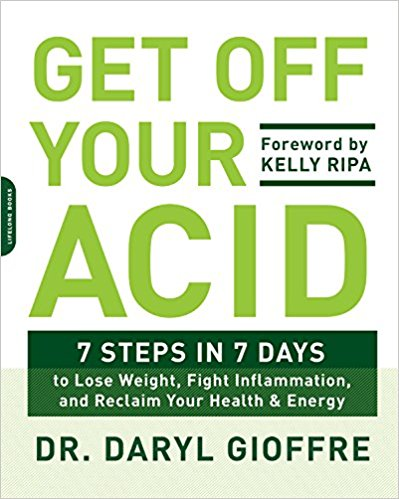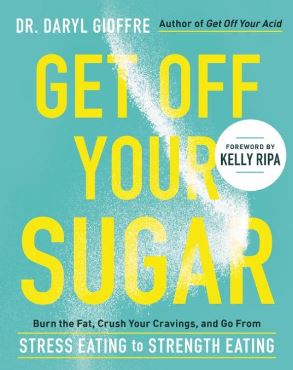
You know which vitamin is most important for your eyes… Beta carotene (AKA vitamin A).
You know which mineral is most important for strong bones… Calcium.
But do you know which mineral is most important for the health of your brain?
Most people don’t. And yet, the health of our brain is absolutely essential to everything we do, including our well-being and longevity.
Without brain health, what do we have?
Make no mistake, there are nutrients that the brain craves, and it’s NOT sugar!
Why we don’t hear more about this – like we do about calcium for bones and vitamin A for eyes – is a mystery given that Alzheimer’s and dementia are the 6th leading cause of death in the US today, according to the Alzheimer’s Association (and other sources say it’s the 3rd cause of death, right behind cancer and heart disease!)
So what can you do to prevent you and the people you love from becoming part of that startling statistic?
Today, we’ll talk about the best neuroprotectors for your brain, including the single most important mineral for neural health and combatting STRESS!
If you’re thinking, “I take fish oil every day, so I’m okay,” you may be interested to know that as important as a quality fish oil supplement is, that’s not the ONLY key to brain health.
Here are 4 vitamins and minerals that are essential brain food.
1.
Choline
If you want to prevent Alzheimer’s, choline is the friend you never knew you had. It’s a micronutrient – technically not a vitamin or mineral, but similar to a vitamin – that is required for brain and nervous system function, including muscle control, memory, fetal brain development, and mood. 
Research has shown choline helps prevent Alzheimer’s and other forms of dementia by preventing three markers of brain degeneration.
Likewise, people who are deficient in choline are at greater risk for cognitive and memory problems.
Although our bodies produce a small amount of choline, we need to consume most of our supply from food and/or supplements. Choline can be found in these alkaline foods:
- Salmon (1 serving = 44% of recommended daily value of choline)
- Chickpeas (36% RDV)
- Split peas (34% RDV)
- Navy beans (32% RDV)
- Cauliflower (8% RDV)
- Brussels sprouts (3% RDV)
Even if you eat a diet rich in foods with choline, you still could be deficient because the gut and liver does not always absorb choline properly. If you’re concerned that you may be deficient because you experience memory loss, cognitive decline, mood disorders, or low energy levels, talk to your doctor about testing choline levels. You can take a choline supplement, but I recommend you choose a good quality supplement made from whole foods.
- Vitamin D
This is a BIG one, as vitamin D isn’t even a vitamin – it’s a HORMONE!
So many people suffer from low levels of vitamin D – as many as 90% of American adults! – and one organ that suffers most is the brain.
 This does not just affect the aging brain. People who are vitamin D deficient perform worse on standardized tests, have difficulty focusing, and have difficulty making smart decisions, according to research.
This does not just affect the aging brain. People who are vitamin D deficient perform worse on standardized tests, have difficulty focusing, and have difficulty making smart decisions, according to research.
With that said, vitamin D continues to be highly important as we age. One study showed that people with low levels of vitamin D were more than twice as likely to develop Alzheimer’s and other forms of dementia than people with normal levels.
That reinforces the findings of other studies. Getting plenty of vitamin D helps prevent cognitive diseases in aging adults and improves the symptoms of dementia in people who have been diagnosed.
The best treatment for increasing your levels of vitamin D, which you almost certainly need to do – is to spend 20 or more minutes of time outside on sunny days, ideally doing some sort of physical activity rather than sunbathing.
- Vitamin B12
This is one that people who eat a strictly plant-based diet need to take extra precaution against becoming deficient. Animal products are the main source of vitamin B12, but even many people who eat animal protein regularly do not get enough. So people who eat plant-based diets can supplement with B12, as well as eat foods fortified with B12 like coconut milk and almond milk.
I take a sublingual lozenge that also helps deal with methylation.Here’s why it’s so important. People who are deficient in vitamin B12 score lower on cognitive testing, report higher levels of brain fog, and may actually experience brain shrinkage, according to emerging research. Studies tracking people who get enough B12 are at a lower risk for developing Alzheimer’s as they age.
 Low magnesium levels have been linked to:Magnesium does so many essential functions throughout the body – more than 600-700 activities in fact. Learning, memory, and mood are among the many ways magnesium levels affect the brain.
Low magnesium levels have been linked to:Magnesium does so many essential functions throughout the body – more than 600-700 activities in fact. Learning, memory, and mood are among the many ways magnesium levels affect the brain.
- Depression
- Mental illness
- Anxiety
- Migraines
- Epilepsy
- Muscle Spasms
- Sugar Cravings
- Other neurological diseases
A couple of studies have found that magnesium could be a powerful treatment for people with depression, perhaps just as effective as antidepressants without the side effects. How crazy is that?
Two more studies have found that magnesium supplementation is as effective at treating migraine headaches as over the counter pain relievers in children and adults. That’s amazing!
Foods rich in chlorophyll are high in magnesium. So aim for lots of:
- Spinach (1 cup = 49% RDV of magnesium!)
- Watercress
- Kale
- Chard
- Collard and turnip greens
- Wheatgrass
Stop and think about that for a second. If you make a smoothie in the morning with 2 cups of spinach, you’re already getting your full daily value of magnesium and keeping your brain healthy. It’s that easy!
Magnesium can also be found in these foods:
-
 Black beans
Black beans - Mung beans
- Almonds
- Cashews
- Pumpkin seeds
- Avocados
- Bananas
- Broccoli
- Brussels sprouts
While eating foods rich in magnesium is the best way to absorb it, most people don’t eat nearly enough of the foods that supply it. So I recommend you include magnesium supplementation as part of your everyday nutrition.
However, it’s important to note that magnesium supplements can have a laxative effect and in too high doses, it can cause diarrhea (though quite rare due to the high levels of deficiency we see). So you have to be careful and take the right amount. This isn’t the case with the food you eat, so feel free to load up on magnesium-rich foods.
That’s why it’s important you take a high-quality mineral supplement that will deliver not only the right amount of magnesium, but also in the right proportion to other minerals.
I created Alkamind Daily Minerals to supply exactly that. Other mineral supplements are expensive rocks – literally! And many of them throw off the balance of these key minerals. Switch to Daily Minerals for a better night’s sleep, improved focus, and less stress.
 Subscribe & Save 15% today!
Subscribe & Save 15% today!
BONUS SUPPLEMENT #5 – Omega-3 Fatty Acids!
Omega-3 fats are as important to your brain, as calcium is to your bones, and magnesium is to your muscles. I said it earlier, your brain doesn’t run on sugar, its prefferes source of fuel is FAT, but healthy fats!
And why is that? Because your brain is made of 60% fat, and because of that, Omega-3 Fatty Acids in the form of fish oil, is one of the most powerful anti-inflammatories for your brain and body. You are ALL deficient. Your children are most likely deficient. If you are not sure, you can take our brand NEW cutting-edge at-home Omega-3 Inflammation Test kit to measure HOW deficient you are, and to determine your Omega-3 to Omega-6 ratio, one of the MOST important biomarkers for inflammation, and preventing dementia in your body.

We have had clients with SEVERE imbalances in this ratio, who were severely inflamed, start taking our Daily Omega-3 Fish Oil, the most powerful fish oil you will find to crush inflammation, and within 4 months. Have been able to get their inflammation levels in balance!
Dr. Daryl
 Skip to content
Skip to content



 Black beans
Black beans




